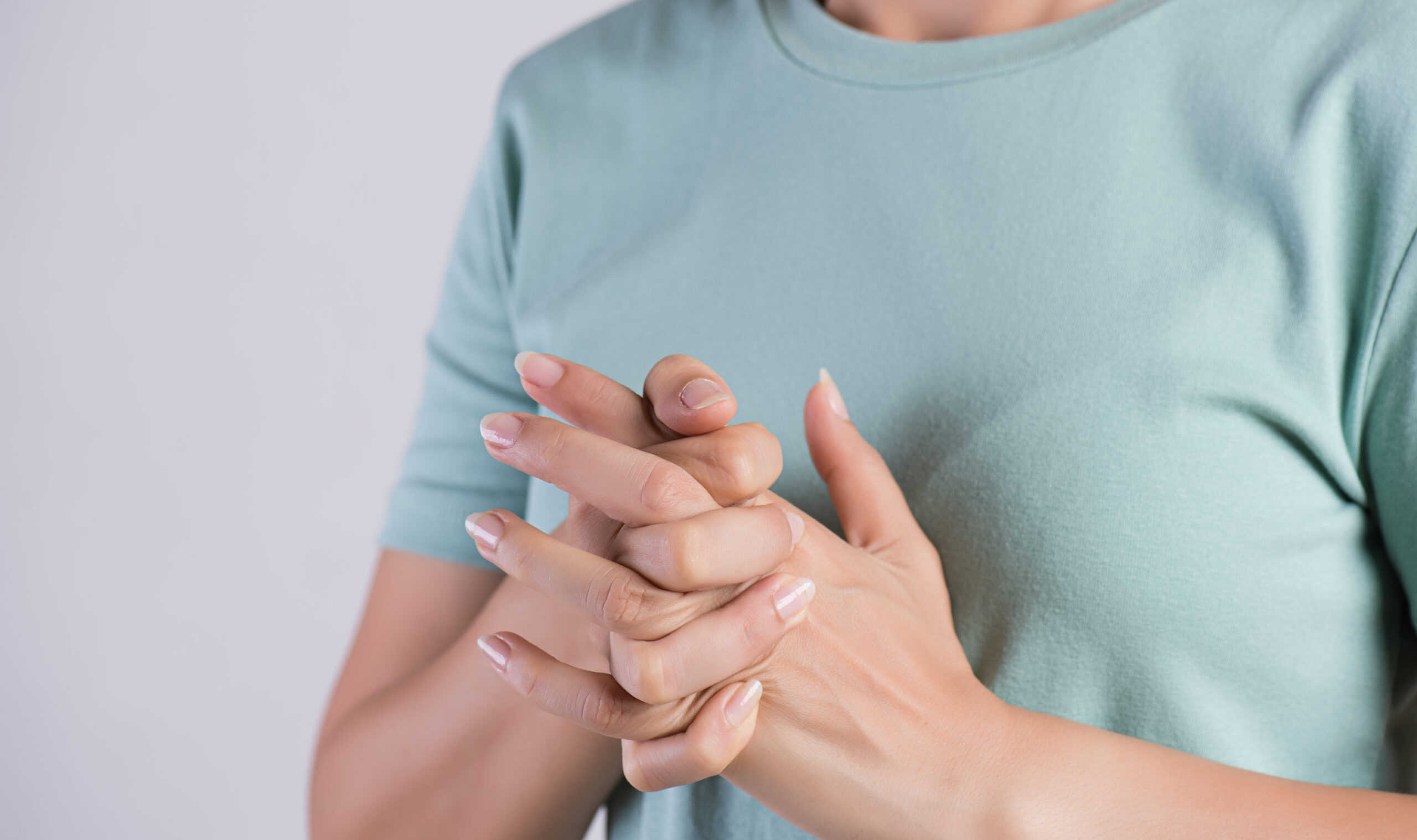Does knuckle-cracking cause arthritis?
Knuckle cracking is a fairly common behaviour, with approximately 20-50% of the population estimated to regularly crack their knuckles (See reference 1). To deliberately produce the ‘popping’ sounds, individuals bend their fingers into unusual positions, such as bending a finger backwards away from the palm (into extension), compressing a finger toward the palm (into flexion), or pulling a finger (traction). The exact physical mechanism of the ‘popping’ sound is not yet known, but the most popular theory is that of joint cavitations (See reference 2). Cavitation implies that small cavities of partial vacuum form within the joint fluid and then rapidly ‘pop’, producing the sound. In fact, the 'pop' that comes from knuckle-cracking is the same as that occurs during spine manipulation applied by a chiropractor or physical therapist. It is generally expressed by ‘knuckle-crackers’ that the behaviour is soothing/relieving. However, it is very often discouraged by ‘non-knuckle-crackers’ because of a belief that it will lead to arthritis. In order to help inform this debate, we have very briefly reviewed the existing scientific research that examines knuckle-cracking. Check it out and decide for yourself…. First, there is anecdotal (testimonial) evidence. Medical doctor Donald Unger regularly cracked the knuckles of his left...

